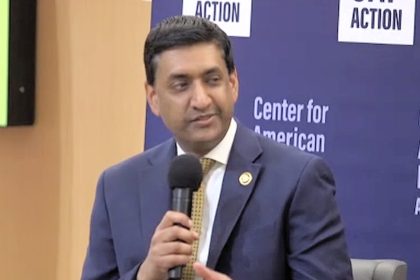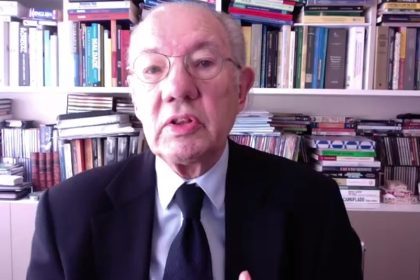Tech Hubs Can Ignite Economic Growth And Create Inclusion, Speakers Argue

WASHINGTON- Legislators want to jolt tech-related economic growth outside of the coastal regions, and according to speakers at a panel event this week, doing so would help ensure American relevance on the global market while lessening some of the inequality from which the country suffers.
At the event, a panel of business leaders and elected officials argued that investors should use “regional tech hubs” to catapult economic growth and inclusion. These regional hubs, in contrast with the coastal areas traditionally associated with tech-related growth, offer a way of bringing in a more diverse set of people than those that currently see most of the economic growth in the country, they suggested.
Powerful dynamics have concentrated U.S. tech into a handful of coastal metro areas, according to Mark Muro, senior fellow for Brookings and policy director for the program that sponsored the event.
From 2005 to 2017, just five coastal metros–Boston, San Francisco, San Jose, Seattle, and San Diego–saw 90% of the nation’s innovation sector job growth, Muro said, adding that in that time about 90% of the metros around the country saw their share of that growth decline.
“We need to push back on that because it’s not likely that this will simply self-correct,” he said. “We also need to push back on the diversity problem implicit in all this.”
According to Muro, regional disparities like this create large gaps in equity across job opportunities, access to wages, health and happiness. In effect, this leaves a large portion of the American population with little access to opportunities.
“Where people live is a huge determinant of their economic opportunities. We know that,” Muro said. “And so the nation’s hyper-concentrated economic geography is creating a kind of economic segregation.”
The chairwoman for the Subcommittee on Research & Technology, Rep. Haley Stevens, D-Mich., argued, during the event, that the future of American competitiveness in the global market hinges on having intentional strategies to address the root causes of disparity.
“As we talk about onramps to opportunity and onramps to economic growth, it is imperative that we take a holistic and inclusive approach not only with regional diversity and inclusion but also population diversity and inclusion,” she said.
Stevens also praised Biden’s innovation plan, as well as a recent act passed by the Senate, which, if passed through Congress, would invest billions into regional hubs.
Biden’s American Jobs Plan, a $2 trillion infrastructure plan that promised to defibrillate the American middle class, outlined a proposal to invest $20 billion into regional innovation hubs and a community revitalization fund. The larger plan proposed to build out and modernize American infrastructure, to avoid catastrophic failures like the lethal Texas cold snap, taking advantage of a legislative window for such a transformative project.
In June, the Senate passed the United States Innovation and Competition Act of 2021 to create a pipeline for fueling research and development in the country.
According to the State Science & Technology Institute, a national nonprofit that worked with Senate Majority Leader Chuck Schumer of New York on the bill, the legislative package which includes the act would approve $10 billion to create regional technology hubs, as well as $100 billion in new research and development and $50 billion in appropriations for semiconductor research.
This would create 18 hubs using the Economic Development Administration’s regions, and it would fund them through $575 million in “strategy development” grants and $9.4 billion in “strategy implementation” grants.
However, the bill has not passed through the legislature yet, and it would need to secure funding, which could prove a difficult hurdle, SSTI said. At the moment, the House is working on several bills of its own.
A survey of regional leaders published last week by Brookings reported that they are most interested in building out transit, equity, and broadband when thinking about Biden’s infrastructure bill, and that almost half of those surveyed believe that outdated federal funding priorities have held them back.
This week’s event was put on by Brookings Institution’s Metropolitan Policy Program, the arm of the DC-based think tank focused on metropolitan policy.























